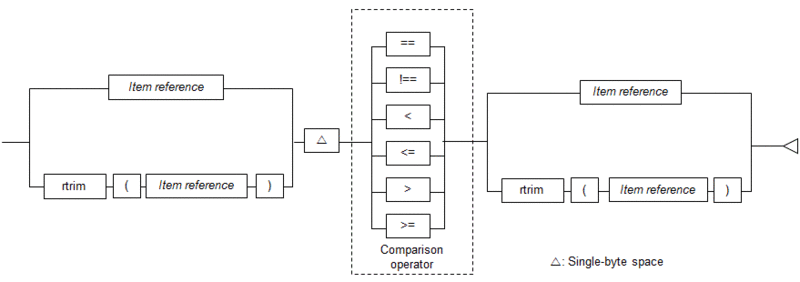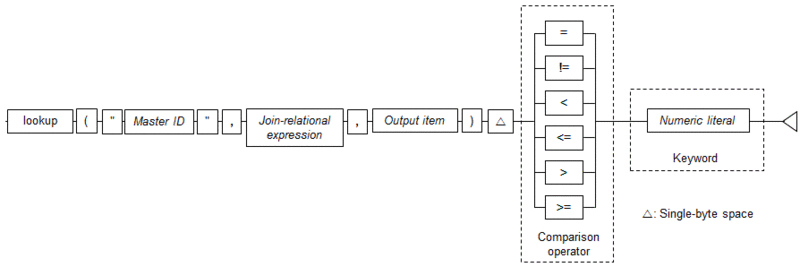Condition expressions are used when performing a comparison between items specified on left and right sides of a comparison operator.
There are the following three types of condition expressions:
Compares the keyword with the input event.
In the search expression, specify an item reference (left side) and a keyword (right side).
Pattern search, string search, and numeric search can be used.
Example
Example of keyword search format (pattern search)

See
Refer to "2.5.5 Keyword Search" for information on keyword search formats.
Refer to "2.4.9 Item References" for details.
Compare items in input events.
In the search expression, specify an item reference (left side) and the value of another item reference (right side).
String comparisons and numeric comparisons can be used.
Example
Example of comparison between items format (string comparison)

See
Refer to "2.5.6 Comparison between Items" for information on comparison between items formats.
Refer to "2.4.9 Item References" for details.
Compare master data items with a keyword.
In the search expression, specify the master data content (left side) and the keyword (right side).
Pattern search, string search, numeric search, master data search, lookup sum matching, and lookup count matching can be used.
Example
Example of lookup search format (numeric search)

See
Refer to "2.5.7 Lookup Search" for information on lookup search formats.
Point
Ensure both the left and right sides of a condition expression are of the same data type.
Note
The "//" path operator can be specified at the end of path expressions only when a pattern is specified for the keyword. Specifying the "//" path operator at the end of a path expression selects all the element nodes under the element node specified by the path expression.
The "*" path element can be specified at the end of path expressions only when a pattern is specified for the keyword.
The "$_" path element can be specified in item expressions only when a pattern is specified for the keyword.
The "*" path element can be specified in the attribute name of attribute expressions only when a pattern is specified for the keyword.